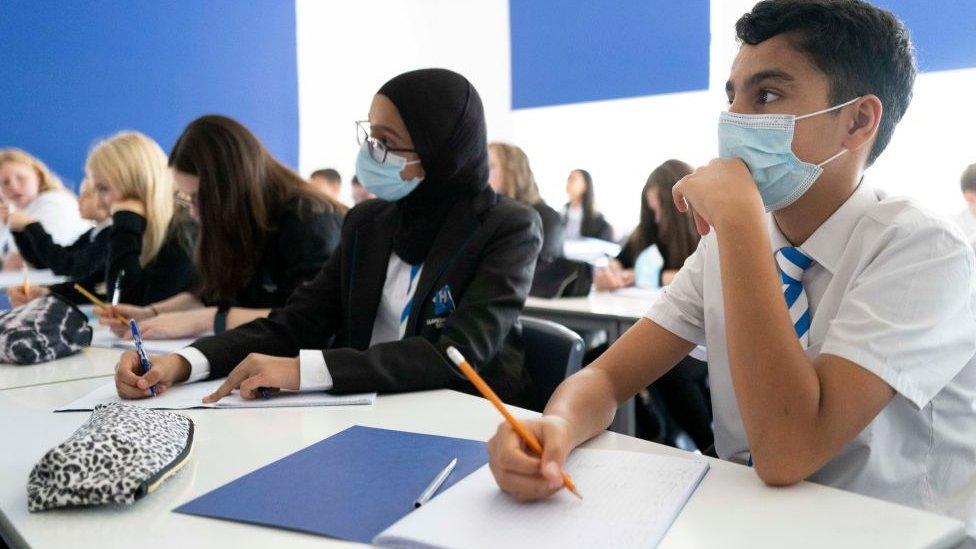Covid in schools: Fears GCSE and A-levels may be unfair amid sickness
- Published
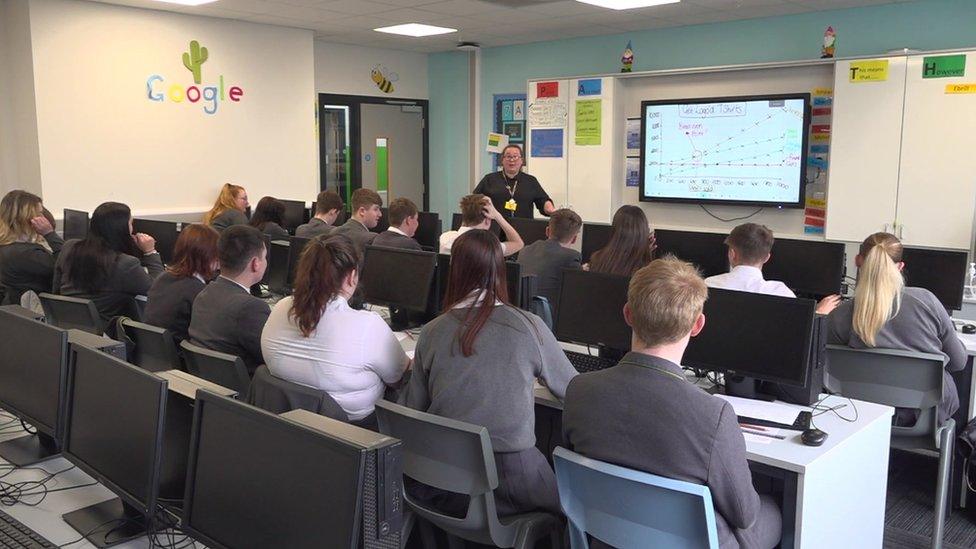
Almost a fifth of staff and pupils have been absent at Connah's Quay High School
The "dreadful" impact of Covid on schools is casting doubt on fairness for exam pupils, headteachers have warned.
A-level and GCSE exams will begin in May after they were cancelled for two years due to the pandemic.
There's concern high staff absences mean some pupils have missed specialist teaching ahead of their exams.
Qualifications Wales said it was confident reducing course content would help address the problem.
At Connah's Quay High School, in Flintshire, almost one in five teachers and one in six pupils were off sick with Covid last week.
Head teacher Amanda Harrison said the situation was "worse than it's ever been".
"It's been dreadful," she said.
You always get exam stress, that's part and parcel of it but we're getting learners in numbers we've never had before
"In the last three weeks we've had to send a year group home for one day to work remotely.
"Attendance at the moment is about 85%, which is just below the national figure for Wales but on top of that it's the absence of staff."
The pupils with the lowest attendance are year 11s who sit their GCSEs in a few weeks.
'Stressed, anxious and worried'
Ms Harrison suspects some have stopped taking twice-weekly rapid Covid tests because they're afraid of missing school and revision sessions.
"The numbers of children who are telling us how stressed they are, how anxious they are, how worried they are is far higher than in a normal year.
"You always get exam stress, that's part and parcel of it, but we're getting learners in numbers we've never had before."
And one teaching union said its members have similar concerns about the impact of absences on preparations for A-levels.
Association of School and College Leaders Cymru director, Eithne Hughes, said "shocking" attendance levels and the fact some pupils had missed time with subject teachers over the past few weeks had led to an "uneven picture of disadvantage and attendance over the country".
"We wish learners well and we know schools have done their best, but the situation is extraordinarily difficult - that can't be overstated," she said.
At Connah's Quay High School the struggle to cover classes saw "everybody mucking in".
But Ms Harrison said: "They're having these big chunks of gaps in their knowledge that we're then trying to backfill when staff come back in. It's a vicious circle."
Overall, she believed it was "unfair" for exams to go ahead because pupils in lower income areas had suffered from missing so much school.
Qualifications Wales said changes had been made to exams to make them as fair as possible.
Less content would be covered in exams and there would be more generous grading than in a normal year, chief executive Philip Blaker said.
Recognising some learners had been harder hit by the pandemic than others, he said no assessment would be able to fix that.
"We're confident that the arrangements that have been put in place to reduce that course content will accommodate people this year," Mr Blaker said.
The Welsh government said it recognised the pressure Covid-19 was still putting on schools.
It said it was helping schools address staffing problems by recruiting more people and by funding support for pupils in exam years.
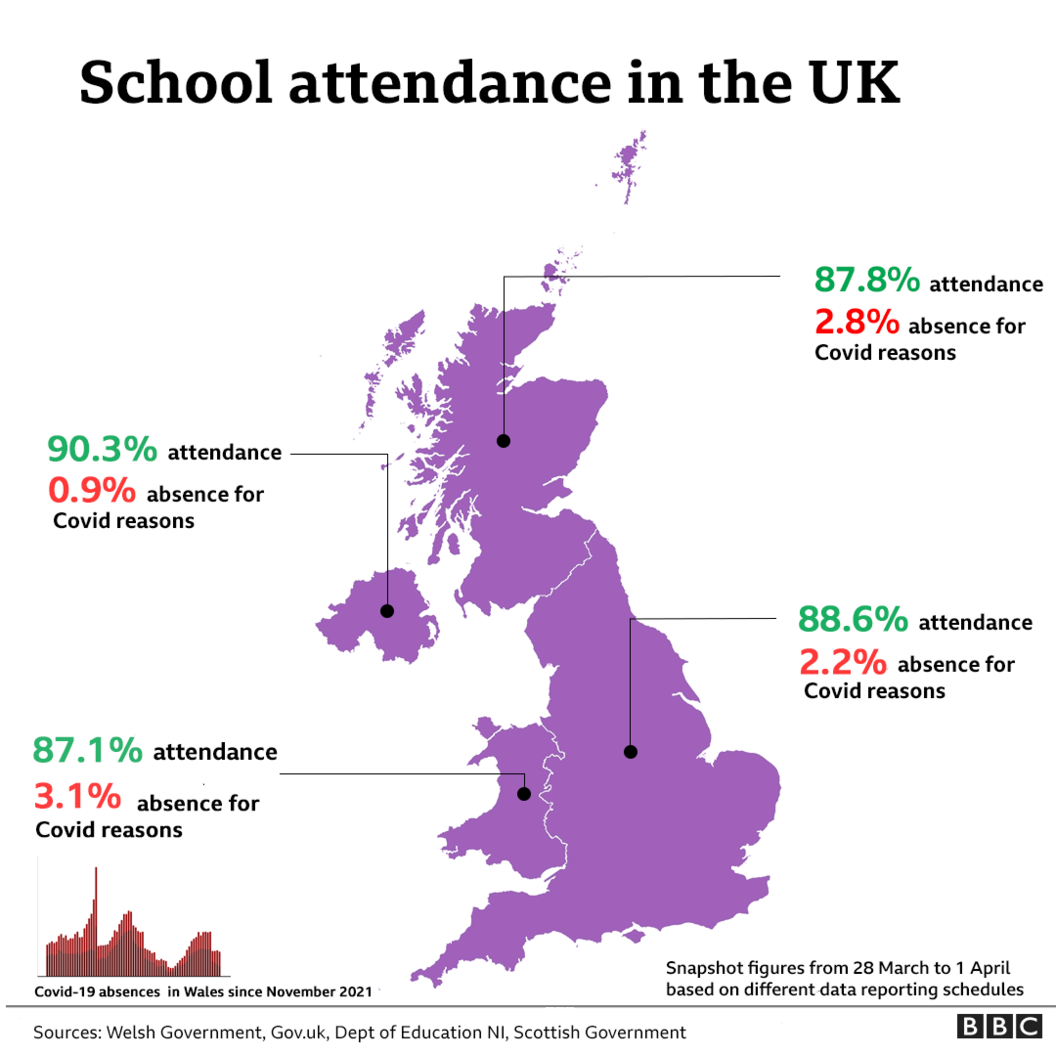
Even after schools fully reopened following lockdowns, attendance remained much lower than at pre-pandemic levels.
In March, daily absences peaked at around 18,250 for pupils.
And in this academic year 83,255 pupils have missed between five-and-a-half and 10 days.
Luke Sibieta, a research fellow at the Education Policy Institute, said absence among pupils had been around 10-15% over the past year compared with 5-6% in normal years.
There have been more absences for non-Covid reasons as well, which "might persist into future years".
"My big worry is that there is a large minority of children, secondary school children in particular, who have become disengaged from schooling, and how we correct that problem is going to be a massive challenge," he said.
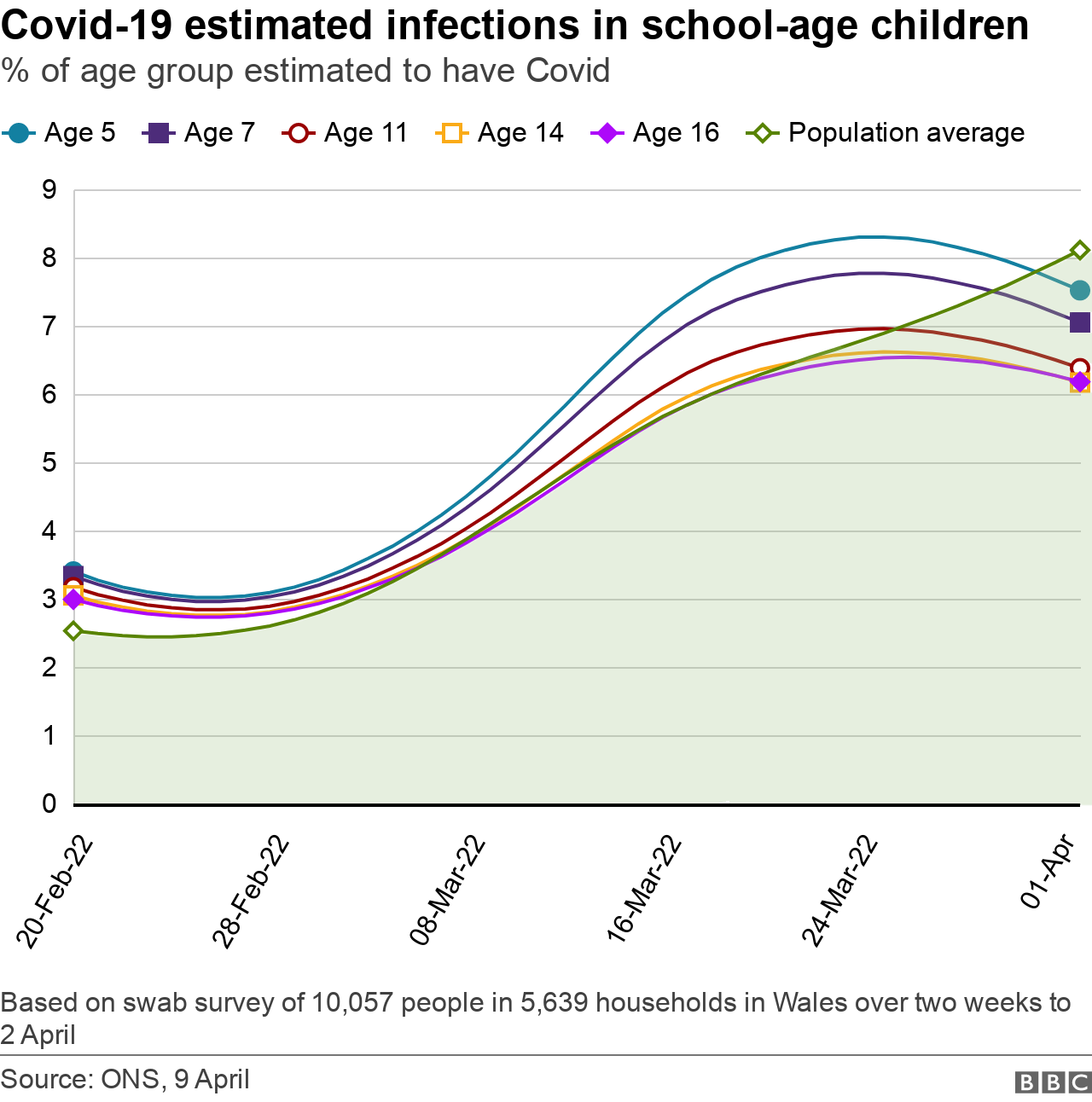
Infections in youngest pupils estimated to be highest but now falling
Covid infections have been rising in recent weeks, according to the most reliable survey of the progress of Covid-19 in Wales.
The ONS publishes a survey weekly of thousands of households, taking swab tests of children and adults.
Infection in primary-age children is estimated to have been above the Welsh average for most of the latest six-week period - with 7.5% of five year olds estimated to be infected on 2 April.
Covid cases could now be starting to fall in youngest pupils although ONS said the trend in young people in Wales was uncertain.
But a major source of difficulty for schools at the moment is cases among staff. Schools say they are struggling to cover absences which means some are resorting to remote learning for short periods.
In Connah's Quay High School, 17% of staff were off with Covid last week
Exams are happening this summer for the first time since 2019. Teachers set grades in 2020 and 2021 and top grades were higher.

The content of courses has been reduced to reflect that this year's exam students have missed so much school.
Watchdog Qualifications Wales has said there will be measures in place to make sure grades don't fall back with a bump to pre-pandemic levels.
Across the UK, exams regulators have said they hope to see a "midway point" between the results of 2019 and 2021.

These 16 year olds have faced disruption for the last two years
A GCSE challenge ahead
As they approach their GCSEs, Year 11s at Connah's Quay High School describe the last two years as "interesting", "different" and "a challenge".
Harry, 15, said he was feeling "quite nervous" and "quite excited to get through them and start the next chapter.
"Teachers have done everything they can to help me through, and I'm doing all my work, so I think I'm all right," he said.
Rhys, 16, said they have tried to "just get on with it".
"Our last normal year in school was back in Year 8 and now we're going into our GCSEs," he said.
"All we can do is the same as every other year before us - revise hard, practice questions, put the effort in and hope for the best outcome."
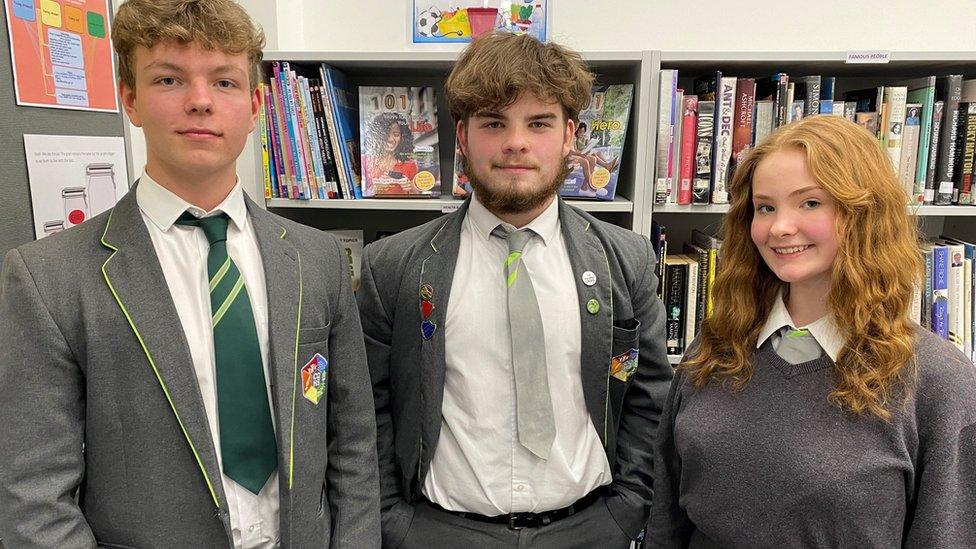
Evan, 15, Rhys and Emma Louise, both 16, are entering the exam period soon
Emma, 16, was glad course content had been reduced to reflect the time they missed from class, but not doing some units brought its own challenges.
She said: "Even though they've dropped some you still worry that if you take that at A-level that you're going to be behind because you haven't learnt it at GCSE so the dropped units are a good thing and a bad thing at the same time."
What next?
After the Easter holidays, secondary school pupils and staff will no longer be asked to take weekly Covid tests.
At the moment they are still asked to wear masks in corridors and other communal spaces indoors.
And schools have different measures in place depending on local risk.
Related topics
- Published30 September 2021
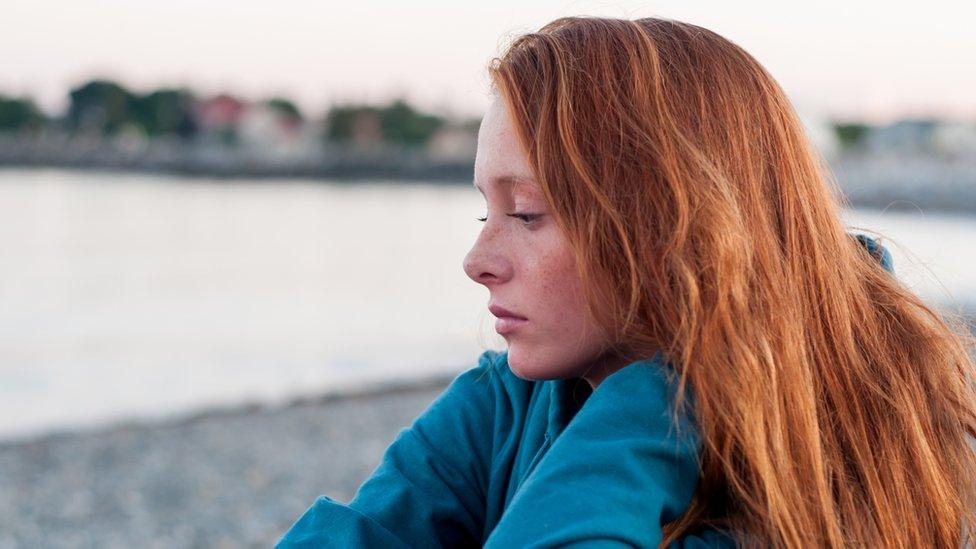
- Published12 May 2022
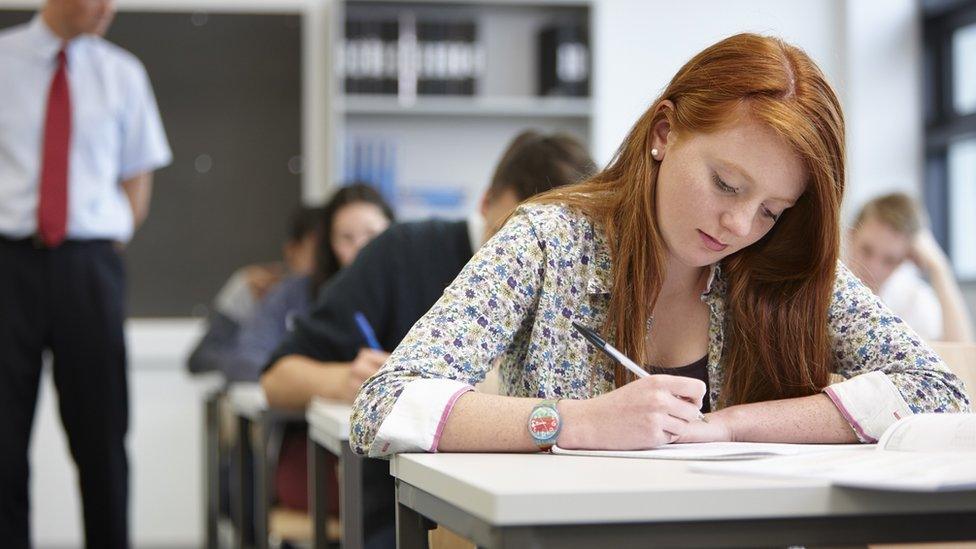
- Published30 August 2021
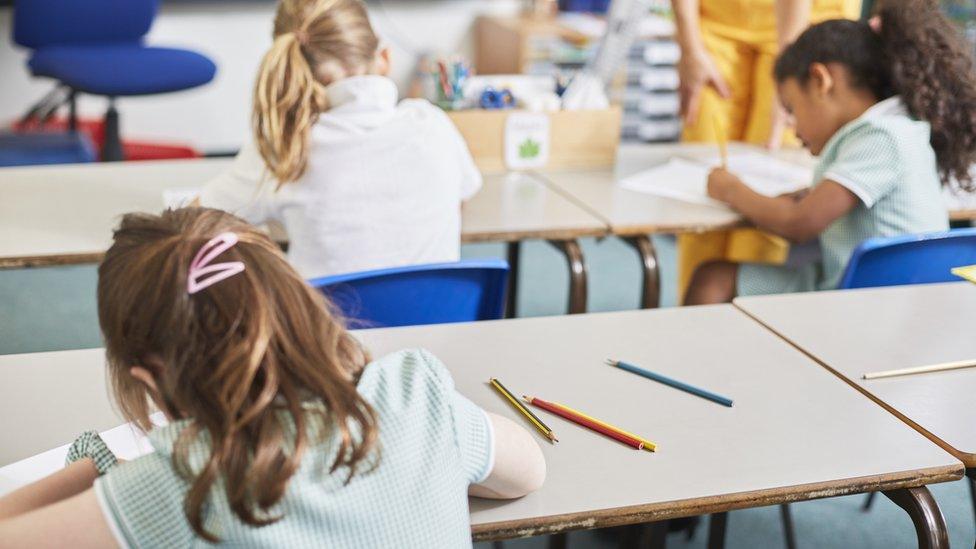
- Published5 April 2022
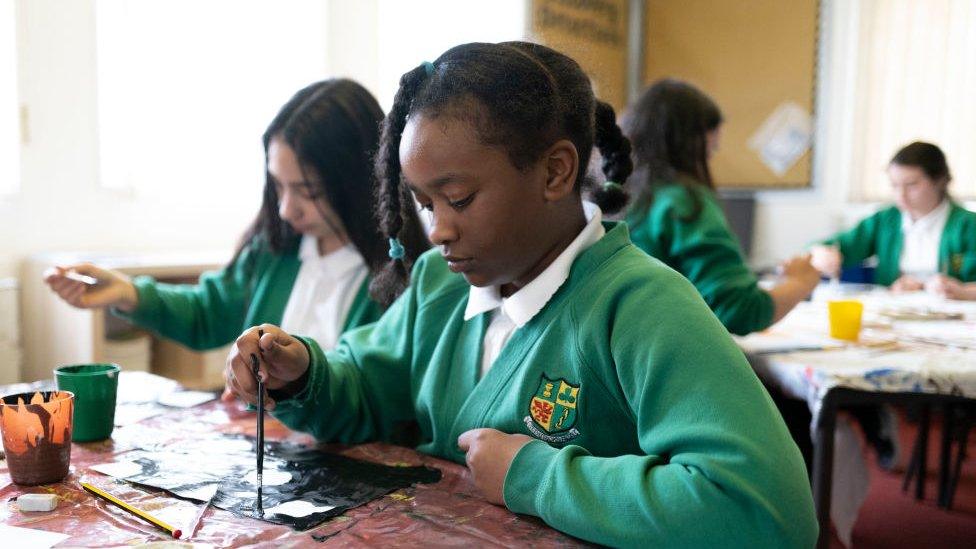
- Published30 March 2022
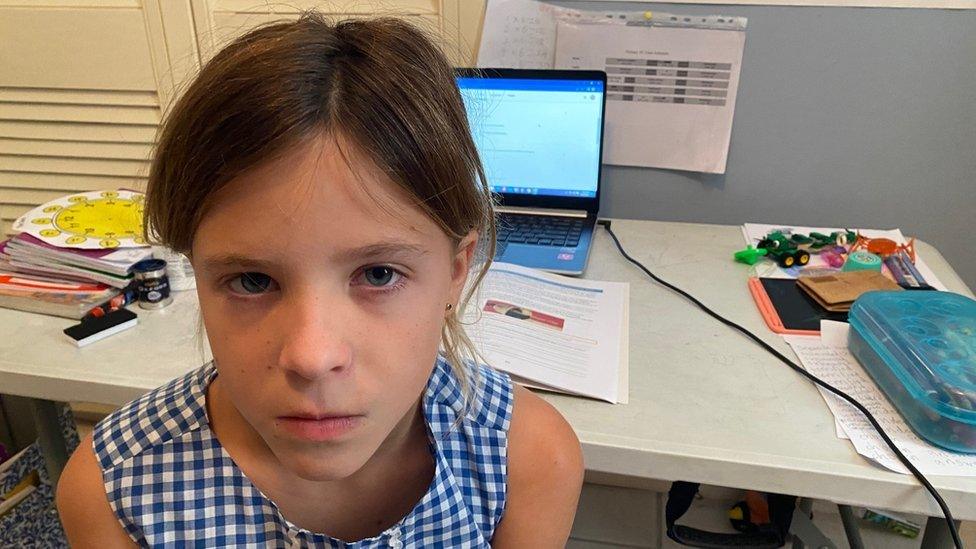
- Published6 April 2022
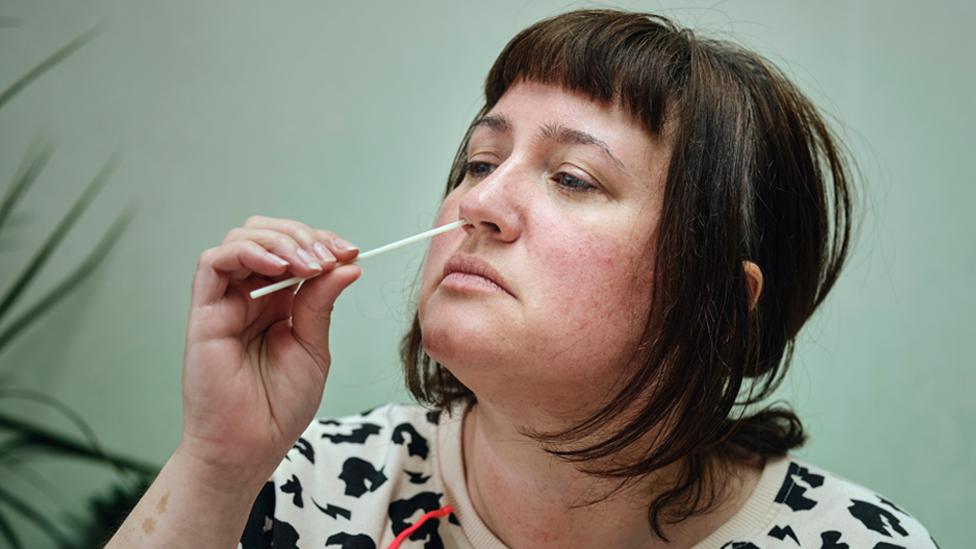
- Published28 May 2024

- Published27 March 2022
